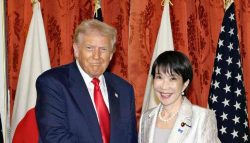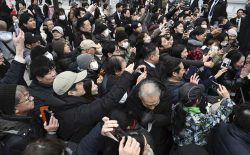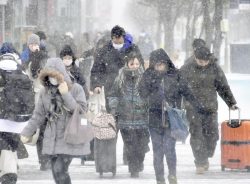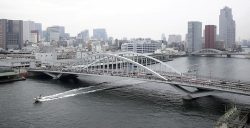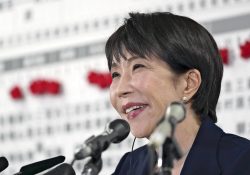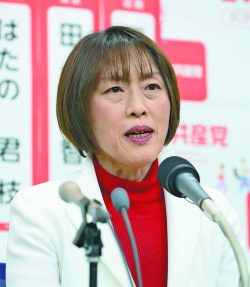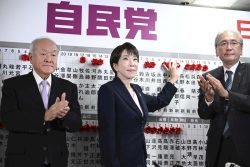Japan’s Ruling Bloc Divided on Nuclear Power Use in New Energy Plan; Komeito Wants Less N-Power Use, LDP Pushes for More
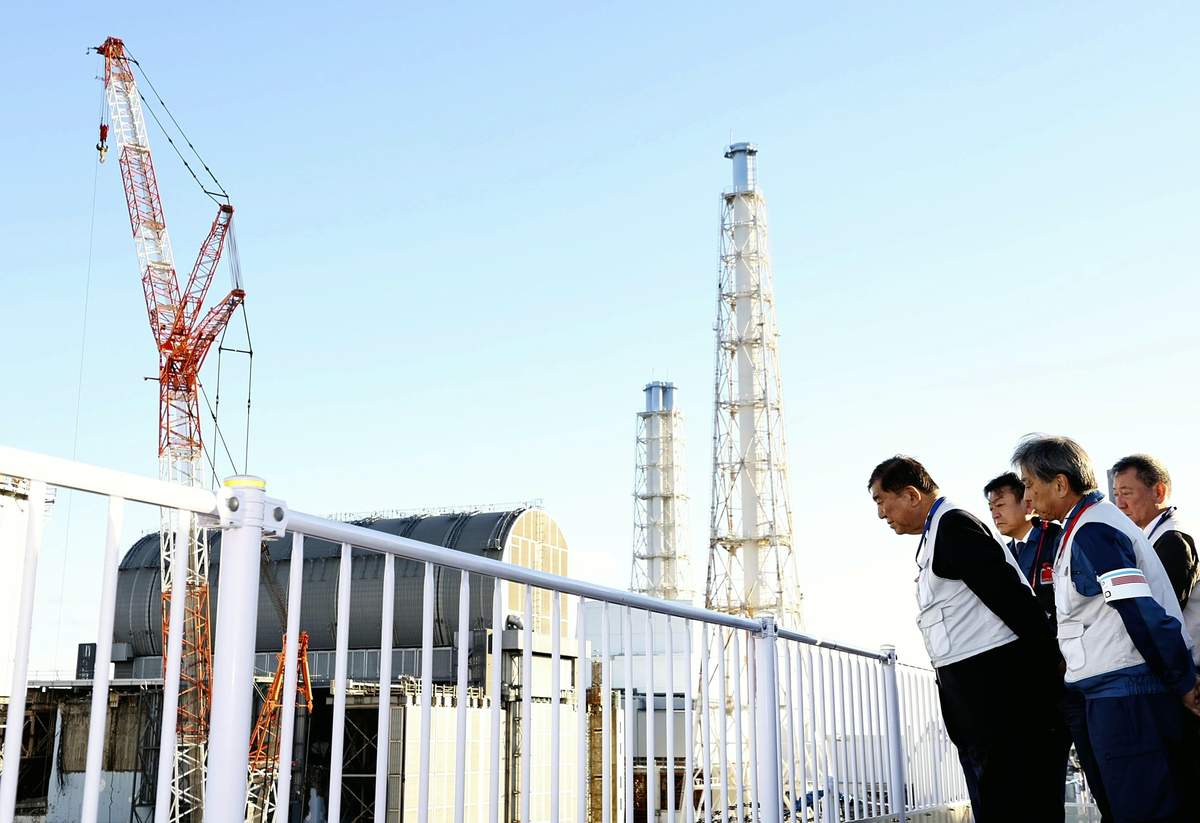
Prime Minister Shigeru Ishiba, left, inspects the Fukushima No. 1 nuclear power plant in Fukushima Prefecture on Saturday.
17:50 JST, December 18, 2024
The Economy, Trade and Industry Ministry announced its draft of the government’s Strategic Energy Plan, which includes changes to its nuclear energy policy following the Liberal Democratic Party and Komeito coming to an agreement on the issue.
The draft, which serves as a guideline for the nation’s medium to long-term energy policy, is being revised for the first time in three years.
The draft stipulates its goals for energy sources in fiscal 2040, including what proportion would come from renewable energy sources and nuclear power, in order to achieve both decarbonization and a stable supply of electricity.
Regarding nuclear energy, the phrase “reducing dependence on nuclear power as much as possible” was deleted from the draft. Instead, it states that the nation would use as much renewable and nuclear energy as possible.
The new wording indicates that the government is determined to shift its energy policy from what it has been since the 2011 Great East Japan Earthquake.
The LDP and Komeito disagreed on how much to depend on nuclear power, as the government had vowed to lower its reliance on the energy source.
‘Renewable, N-power both necessary’
Yoshifumi Murase, the commissioner of the Agency for Natural Resources and Energy, told a panel of experts that its not about using only renewable energy or using only nuclear energy, “it’s important to utilize both as much as possible.”
Since the Great East Japan Earthquake, renewable energies rapidly expanded but has now stagnated.
Progressing toward only using renewable energy sources without considering all other possibilities could lead to an unstable electricity supply, result in higher electricity bills and negatively impact the economy.
Before the 2011 earthquake, nuclear power generation accounted for about 30% of the electricity generated, but since the disaster, only 14 reactors have been reactivated so far. In fiscal 2o23, nuclear power generation accounted for 8.5%.
As electricity demand is expected to increase, the government believed it was crucial to push for the inclusion of the phrase to use nuclear power as much as possible into the draft.
LDP, Komeito split
The LDP and Komeito were in a disagreement over the use of nuclear power.
It is thought that Komeito supporters oppose nuclear power, and in this year’s House of Representatives election, the party presented an energy policy pledge to lower the country’s reliance on the energy source.
However, the LDP wanted to delete the phrase about lowering the country’s reliance on nuclear power from the next energy plan, in part because industrial circles urged for the utilization of nuclear power plants.
Komeito members had repeatedly discussed a proposal regarding the issue since the beginning of November, but nothing was finalized.
“If the phrase about lowering the country’s reliance is deleted, the number [of nuclear power plants] might increase without limits,” said a Komeito lawmaker.
Mood change
However, the mood changed after the Democratic Party for the People, which increased its lower house seats in the general election, made a proposal to the ruling camp.
The Federation of Electric Power Related Industry Worker’s Unions of Japan (Denryoku Soren) is a support base for the DPFP. In late November, the DPFP urged Prime Minister Shigeru Ishiba to include a phrase about “replacing and constructing new” nuclear power plants in the next energy plan.
According to government sources, former economy minister Hiroshi Kajiyama of the LDP convinced the former Land, Infrastructure, Transport and Tourism Minister Kazuyoshi Akaba, who is responsible for Komeito’s energy policy, to delete the phrase about lowering the country’s dependence on nuclear power.
Komeito’s proposal to the government did not include the phrase. The party also initially opposed, but then reluctantly accepted phrasing about building new reactors at other sites of nuclear power plants besides those that are set to be decommissioned.
“It will not result in any increase in the percentage of nuclear energy used,” Akaba told reporters on Dec. 13, after giving the proposal to Ishiba. “There is no room for changing our policy about nuclear power plants.”
However, some Komeito members voiced their concerns.
“If the LDP and DPFP cooperate ever further in the field of energy policies, Komeito’s position will become ambiguous,” said a Komeito lawmaker.
Top Articles in Politics
-

LDP Wins Historic Landslide Victory
-

Japan Tourism Agency Calls for Strengthening Measures Against Overtourism
-

LDP Wins Landslide Victory, Secures Single-party Majority; Ruling Coalition with JIP Poised to Secure Over 300 seats (UPDATE 1)
-
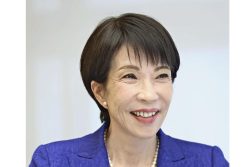
Japan’s Prime Minister: 2-Year Tax Cut on Food Possible Without Issuing Bonds
-

Voters Using AI to Choose Candidates in Japan’s Upcoming General Election; ChatGPT, Other AI Services Found Providing Incorrect Information
JN ACCESS RANKING
-

Japan Institute to Use Domestic Commercial Optical Lattice Clock to Set Japan Standard Time
-

China Eyes Rare Earth Foothold in Malaysia to Maintain Dominance, Counter Japan, U.S.
-

Man Infected with Measles May Have Come in Contact with Many People in Tokyo, Went to Store, Restaurant Around When Symptoms Emerged
-

Japan, Qatar Ministers Agree on Need for Stable Energy Supplies; Motegi, Qatari Prime Minister Al-Thani Affirm Commitment to Cooperation
-

Australian Woman Dies After Mishap on Ski Lift in Nagano Prefecture


